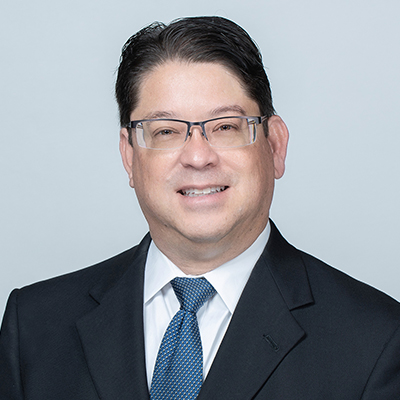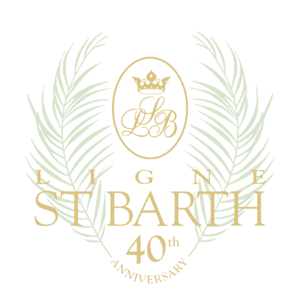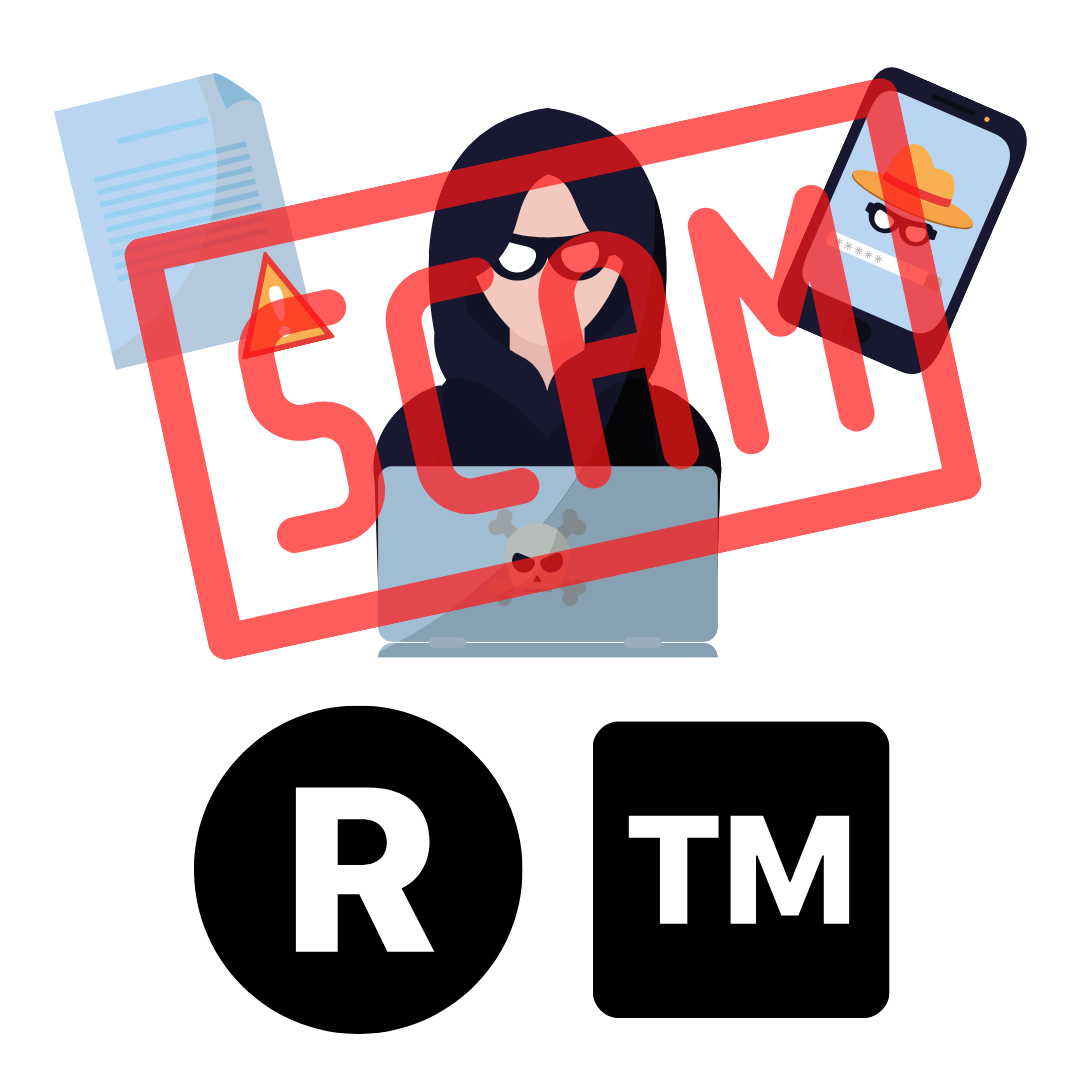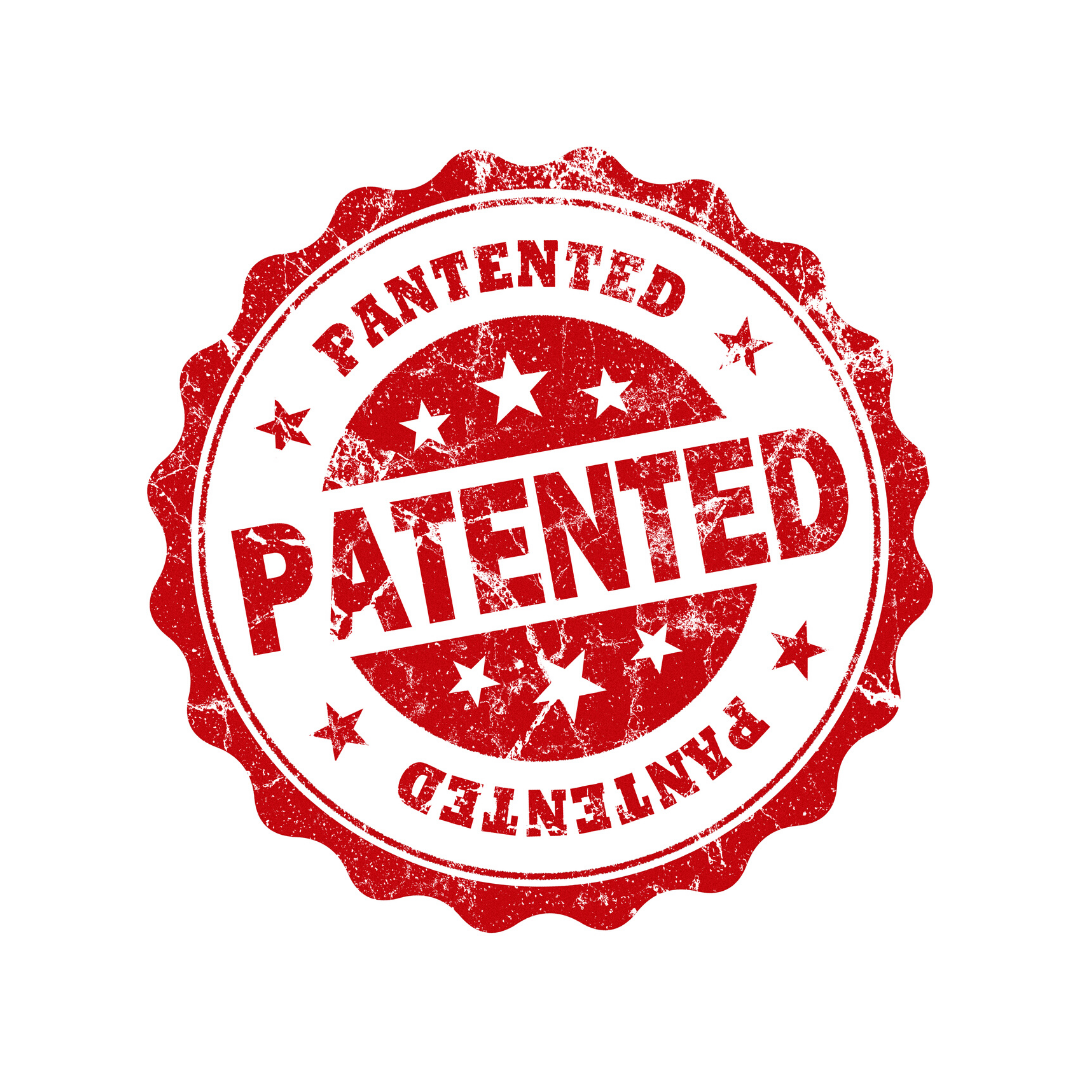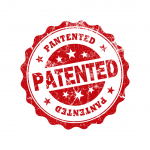 Washington, D.C. – U.S. News & World Report and Best Lawyers, for the 11th consecutive year, collaboratively announce the release of the “Best Law Firms” rankings. The Kim & Lahey Law Firm has been recognized for this honor three times since it was founded in 2018.
Washington, D.C. – U.S. News & World Report and Best Lawyers, for the 11th consecutive year, collaboratively announce the release of the “Best Law Firms” rankings. The Kim & Lahey Law Firm has been recognized for this honor three times since it was founded in 2018.
For years, we’ve been warned 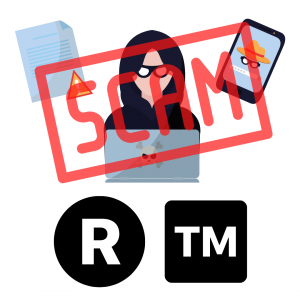 not to click links inside emails or text messages, unless we trust the sender. It’s also no secret that scam artists are becoming more refined in their approach, sending emails that look like they’re coming from your bank or credit agency.
not to click links inside emails or text messages, unless we trust the sender. It’s also no secret that scam artists are becoming more refined in their approach, sending emails that look like they’re coming from your bank or credit agency.
Financial institutions aren’t the only ones being spoofed. The United States Patent and Trademark Office is seeing an increase in schemes involving emails and text messages that mimic the USPTO. We know first hand. One of our attorneys received a fraudulent text regarding his trademark just last week.
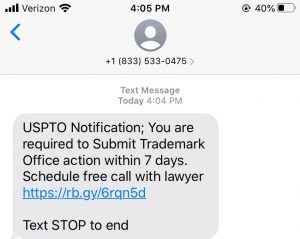
The USPTO recently issued a warning about emails that appear to originate from its office, but are actually being sent by third parties. Victims of these scams can find themselves out of pocket for large amounts of money or, in some cases, having authorized a third party to take action with respect to the owner’s registrations or pending trademark applications.
Beware of messages that do the following:
- Spoof the USPTO email address (e.g., [email protected])
- State that the USPTO has implemented “a new policy” requiring separate registration of clients and that there is a penalty for not complying
- Provide incorrect USPTO trademark filing information (e.g., incorrect fee information)
What Should You Do?
We strongly advise any client receiving emails that appear to be from the USPTO, not to respond directly about your trademark application or registration. Never pay fees or provide any information to the sender.
Before you take any action, check to see if the communication is legitimate by visiting the USPTO’s Trademark Status & Document Retrieval database. When you enter the trademark application or registration number, it will list all outgoing communications from the USPTO, except for the application filing receipt. If the letter or email you received isn’t listed there, it most likely came from someone else. You can also review examples of misleading notices that are not actually from the USPTO, and a list of known scam artists.
If you think you’ve been targeted by this email scam, you can file a complaint with the Federal Trade Commission. Our team of Intellectual Property attorneys is available to assist you and answer any questions you may have. You can reach us at 864-973-6688.


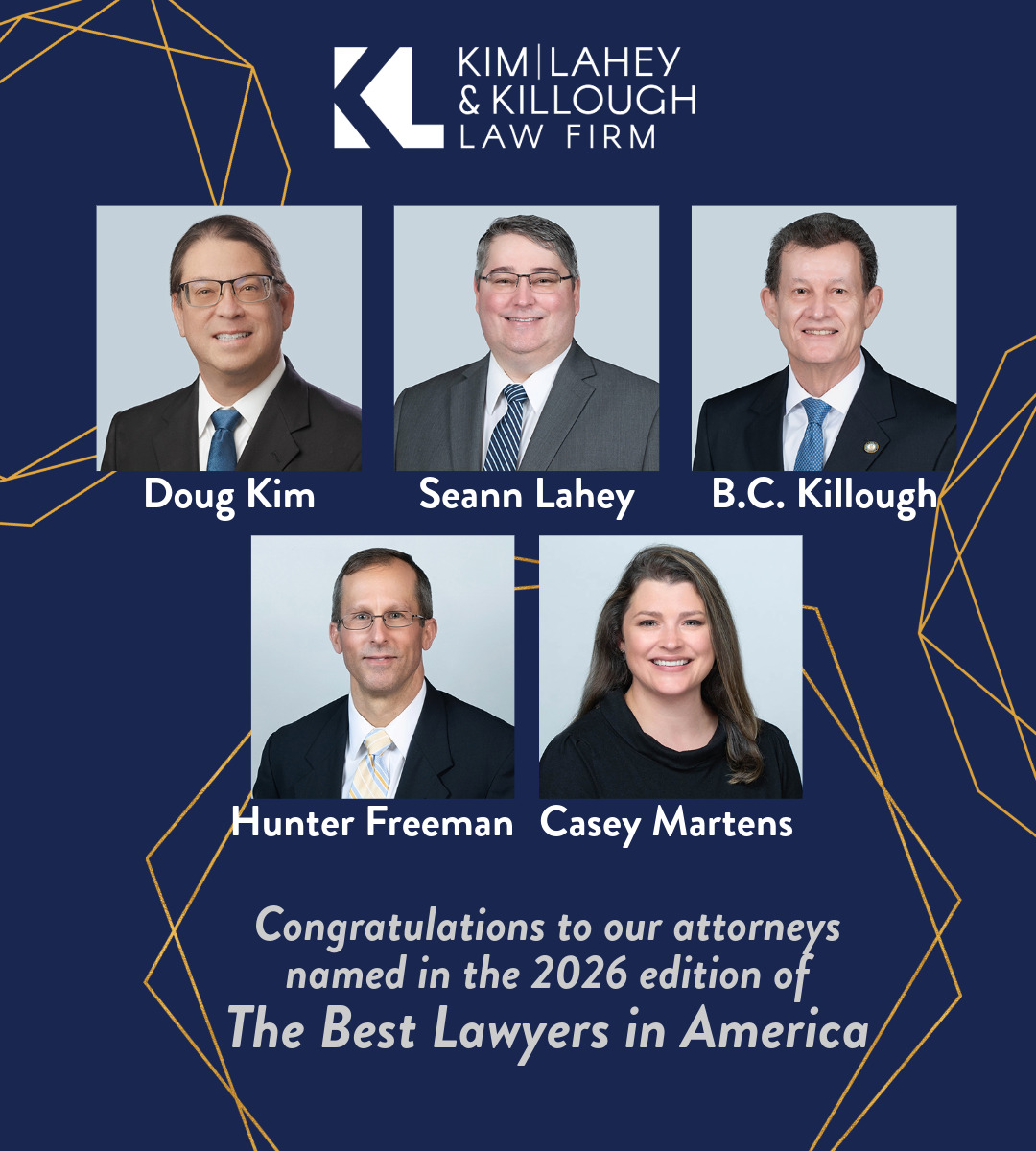
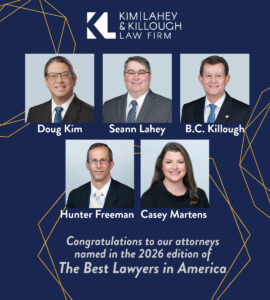 Kim, Lahey & Killough Law Firm is honored to announce that five of the firm attorneys are listed in The Best Lawyers in America® 2026 edition:
Kim, Lahey & Killough Law Firm is honored to announce that five of the firm attorneys are listed in The Best Lawyers in America® 2026 edition: